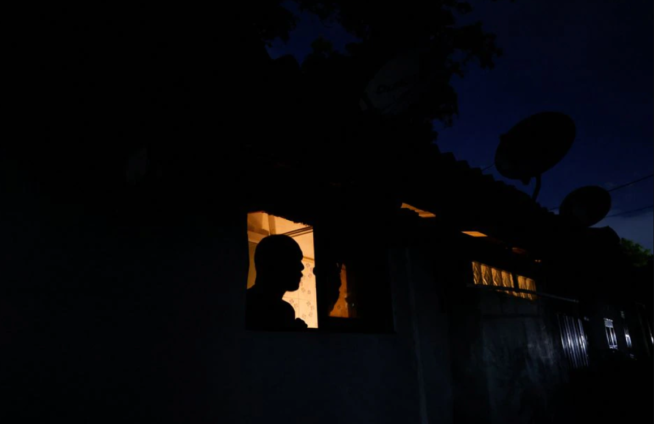A Member of Parliament’s Energy Committee, Dr Kwabena Donkor, has shed light on some critical challenges facing the country’s power sector, leading to erratic power supply in recent times.
Speaking on JoyNews’ PM Express, Dr Donkor, who doubles as MP for Pru East noted that approximately 70 percent of the power sector’s challenge stems from financial and liquidity constraints.
He, however, highlighted that some technical challenges have exacerbated the situation.
Of particular concern to Dr Donkor, a former Power Minister, was what he termed "desktop piling," referring to the bureaucratic backlog hindering progress within the sector.
“70 percent of the challenge being experienced in the power sector is financial and liquidity. But there is also the technical challenge. For me, the worst part of the challenge we have is the desktop piling that we are doing,” he said on Monday.
Ghana's power crisis has been a longstanding issue, marked by recurring blackouts and unreliable electricity supply. The consequences of the power crisis have been far-reaching, impacting businesses, households, and the overall economy. Industries have been forced to contend with erratic power supply, leading to disruptions in production and increased operational costs.
Households have endured frequent blackouts, affecting daily routines and aggravating living conditions.
Due to these challenges, stakeholders within the energy sector have been under pressure to implement solutions that address the root causes of the crisis.
Touching on the root causes of the crisis, Energy Analyst Kwame Jantuah identified finance, debt burden, equipment inadequacies, maintenance deficiencies, and fuel procurement as contributory factors.
He noted that while these issues are well-known to stakeholders within the sector, the lack of transparency in communicating them to the public has hindered progress towards viable solutions.
“… Are you trying to tell me that the relevant stakeholders in the power sector don’t know this? They do, but it seems it is we the consumers who don’t know.
“And it is because we are not being told the truth. If we were told when this power crisis started what we are being told today, wouldn’t we have probably solved it by now?” he quizzed.
Watch PM Express below:
Latest Stories
-
Paris 2024: Opening ceremony showcases grandiose celebration of French culture and diversity
3 hours -
How decline of Indian vultures led to 500,000 human deaths
4 hours -
Paris 2024: Ghana rocks ‘fabulous fugu’ at olympics opening ceremony
4 hours -
Trust Hospital faces financial strain with rising debt levels – Auditor-General’s report
5 hours -
Electrochem lease: Allocate portions of land to Songor people – Resident demand
5 hours -
82 widows receive financial aid from Chayil Foundation
5 hours -
The silent struggles: Female journalists grapple with Ghana’s high cost of living
5 hours -
BoG yet to make any payment to Service Ghana Auto Group
5 hours -
‘Crushed Young’: The Multimedia Group, JL Properties surprise accident victim’s family with fully-furnished apartment
6 hours -
Asante Kotoko needs structure that would outlive any administration – Opoku Nti
6 hours -
JoyNews exposé on Customs officials demanding bribes airs on July 29
7 hours -
JoyNews Impact Maker Awardee ships first consignment of honey from Kwahu Afram Plains
8 hours -
Joint committee under fire over report on salt mining lease granted Electrochem
8 hours -
Life Lounge with Edem Knight-Tay: Don’t be beaten the third time
8 hours -
Pro-NPP group launched to help ‘Break the 8’
8 hours

